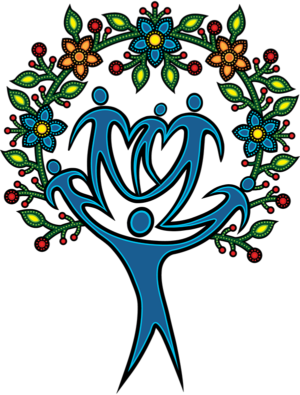New research published by the Change Collective in Calgary, (co-funded by the Burns Fund and the United Way of Calgary and area, with a number of agency partners and co-authors including Big Brothers Big Sisters Calgary & Area) provides a framework for enhancing natural supports as a critical lever in promoting healthy youth development. Within the mentoring movement we talk about reframing the perception of mentoring from a “nice to have” to a “need to have” support in a young person’s life. This work emphasizes the importance of strong relationships in supporting young people– mirroring much of the important natural mentoring research we have seen emphasized by Dubois & Karcher in the Handbook of Youth Mentoring (Second Edition).
Mentoring programs can act as a bridging tie– a relationship multiplier– that can be essential to helping youth identify natural supports in their lives, and build their social capital. The Executive Summary overview explains:
WHAT
- Natural supports are relationships and associations that are developed in the course of daily living. They are ‘natural’ in the sense that they are informally and locally developed, and are based on reciprocity or give and take. Natural supports include family, friends, romantic partners, neighbours, coaches, team-mates, and others who comprise our social network.
- While a growing body of research clearly demonstrates the connection between positive natural supports and healthy youth development, the practice of helping youth to identify, strengthen and extend their social networks lags far behind.
WHY
- Professional supports, while important, aren’t sustainable. Programs end, professionals change jobs and youth age out of services. An over-reliance on professional supports ultimately increases vulnerability.
- Natural supports play a critical role in promoting youth resiliency, social integration, and positive development. They can also contribute to a youth’s recovery and growth process, reduce psychological distress and help vulnerable youth successfully transition to adulthood.
We encourage you to read the full report here: http://www.burnsfund.com/partnerships/working-with-vulnerable-youth-to-enhance-their-natural-supports/
There was much in the report that gave us pause to reflect as mentoring practitioners. A mentor can play an important role in developing natural supports. What implications will natural supports research have for our future mentor training and how will it impact our current practice around match support? What implications might this research have in how we support our mentoring matches? How can we be more intentional in bridging our youth to other supports? In what ways can mentors assist mentees in transitioning and closure through a mentoring relationship? We hope to facilitate a webinar and further discussion with the report authors and participating mentoring organizations in the near future.
Quality mentoring programs can contribute to strengthening the supports accessible to a young person and building their social capital. Connections, in the report, are viewed as a basic human need and given the same weight as food and shelter in terms of being essential to life.
Quality Mentoring facilitates a relationship based on trust and open communication. Mentors helps young people foster a sense of belonging, build self-confidence and learn new skills and ignite their passions. Talking and spending time with engaged adults provides children with positive experiences during periods of heightened brain development. That kind of positive mentoring can help children build a solid foundation that prepares them to adapt to the future demands of the adult world.
This reminds us of the powerful video from MENTOR, Who helped you, before you were you?
If you are reading this and you aren’t already– Become a mentor and help a young person do better in life, school, understand their strengths, and reach for their goals. Your presence, time, support, advice, friendship and constructive role modelling can make a big difference.
We know that in Alberta:
- 80% of 18-24 year olds in Alberta wished they had a mentor when they were kids
- 89% of Mentees said mentoring increased their social skills
- 81% of Mentees said mentoring helped them stay in school
- 92% of Mentees said mentoring increased their hope for the future
*2016 University of Alberta Population Research:
And if you have another friend in mind, consider nominating them to become a mentor today:
https://albertamentors.ca/mentoring-month/start-mentoring/nominate-a-mentor/
